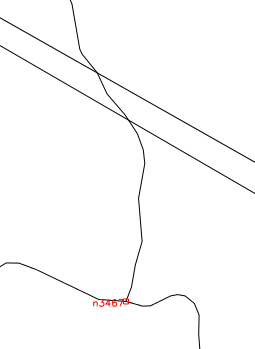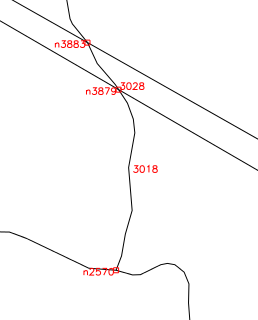OpenStreetMap
OSM Homepage: http://www.openstreetmap.org/
Import
- GRASS_AddOns#v.in.osm (fairly rough script)
Conversion with Mapnik to raster tiles may work, but be very careful about projection issues, typical online web map tiles are not appropriate for GIS import.
Data as shapefiles
Get data from here:
Then import with v.in.ogr
Data from WMS
- Web Map Service (WMS) for Europe: GetCapabilities to access the WMS
- No free/open world-wide server known - Badly needed
Then import with r.in.wms
OSM vs. GRASS topology
OSM topological model is different to GRASS topological model. OSM topologically correct connections of the lines can be on all nodes of the line. Unlike OSM, GRASS allows to connect lines only on their starting/end nodes.Therefore after the import it is needed to split lines into the smallest segments by "v.split vertices=2". However after application of the v.split, there are too many lines and some of them are not necessary. Module v.build.polylines cats=same merges the extra lines into single polyline.
Expample
The roundabout_before.png image represents roundabout after the import of the OSM shapefile from geofabrik. You can see that there is only one category number 917, it means that the roundabout circle is just one segment and grass does not see all connections to other lines, because they are not on the starting/end node of the circle.
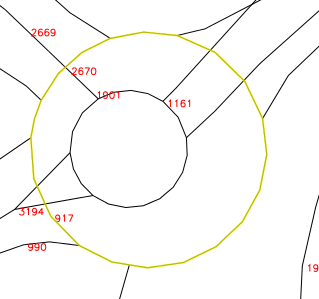
After the application of v.split you get too many one segment lines. It is clear form roundabout_split.png.
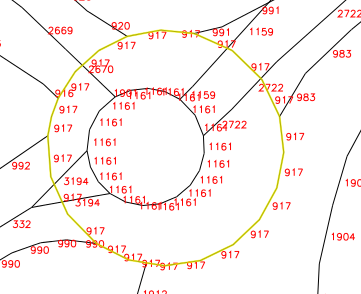
v.build.polylines gives you what you need. All lines starts/ends on the intersections with other lines.
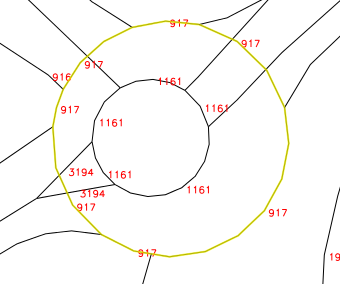
There is another possibility to use v.clean tool=break but if you have e. g. bridge then v.clean connects it to the roads going bellow it which is incorrect. The above described approach does not split the bridge there. See vclean,png and vclean_difference.png.
